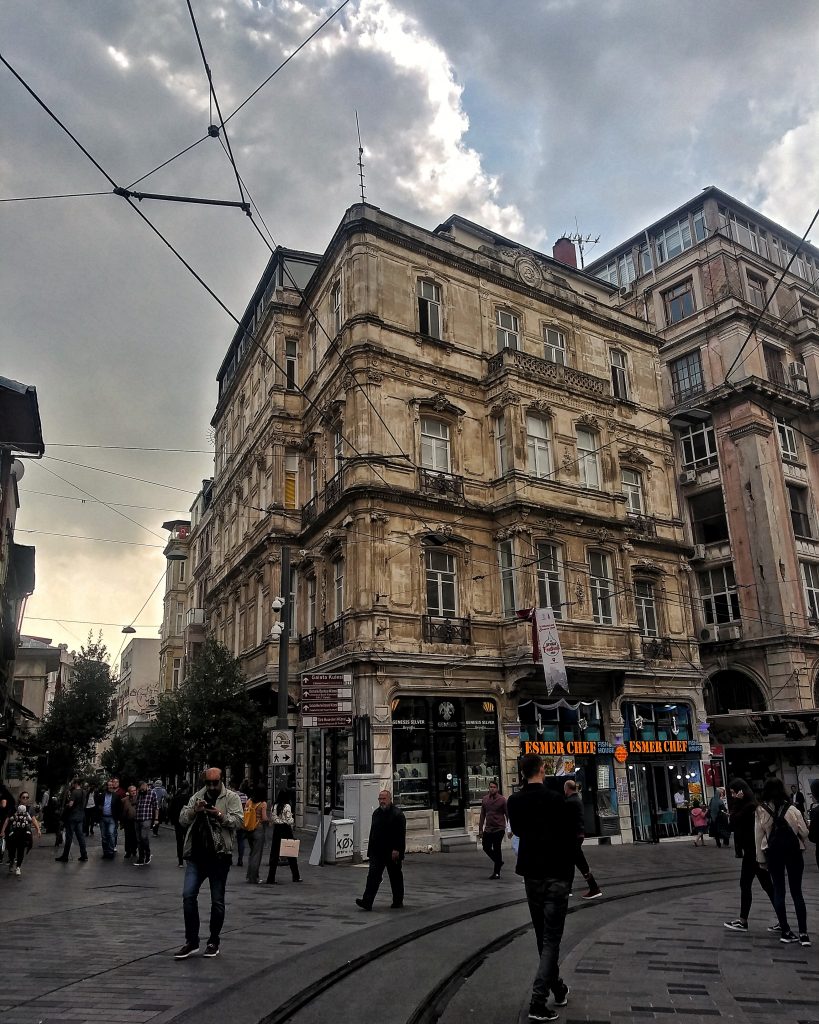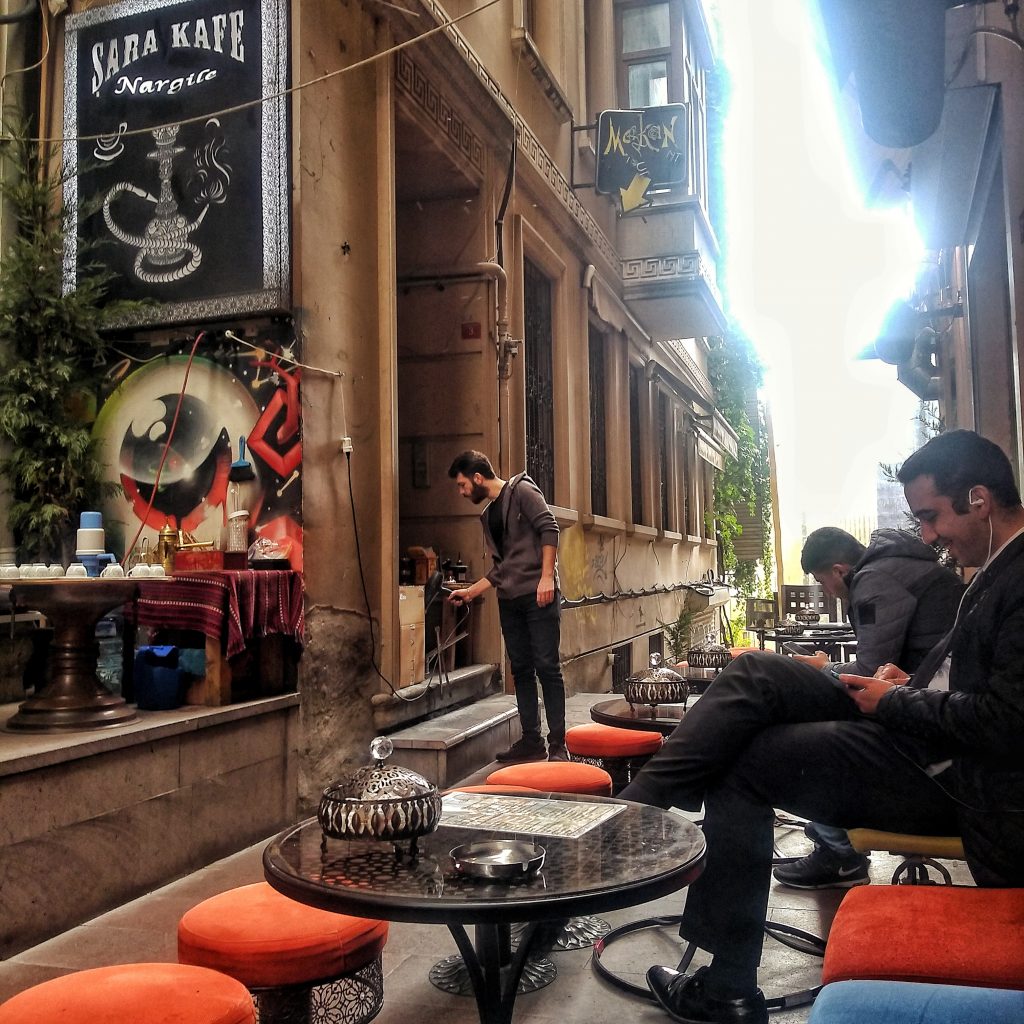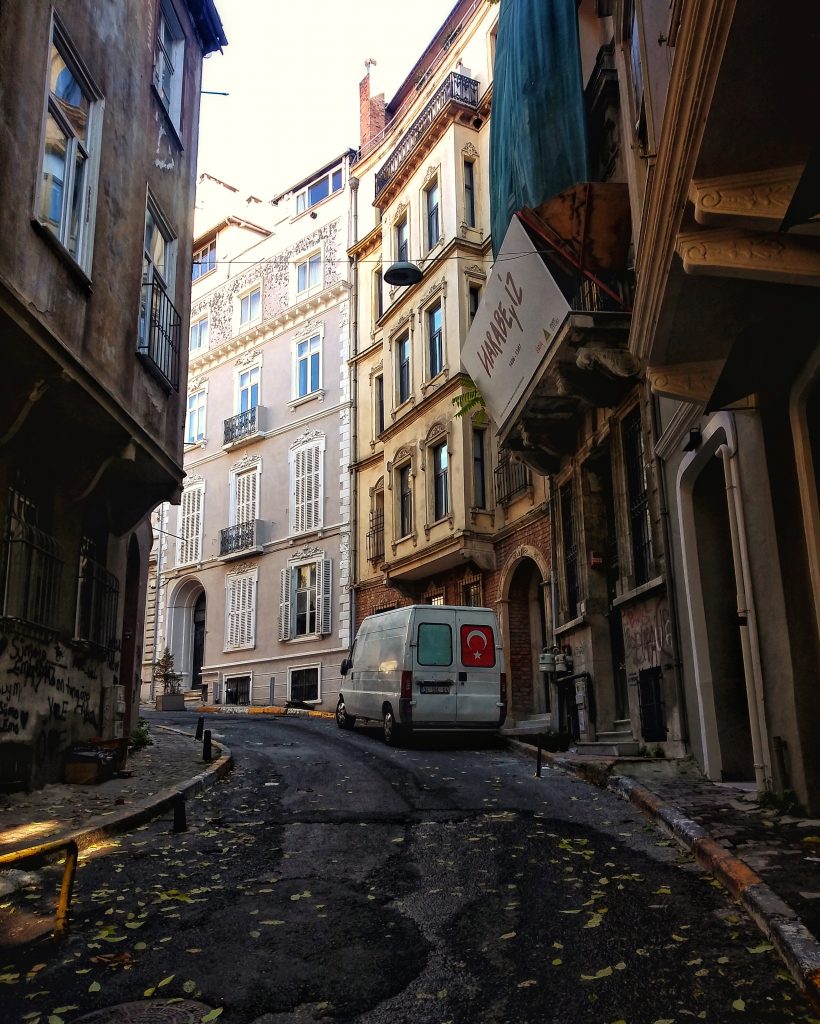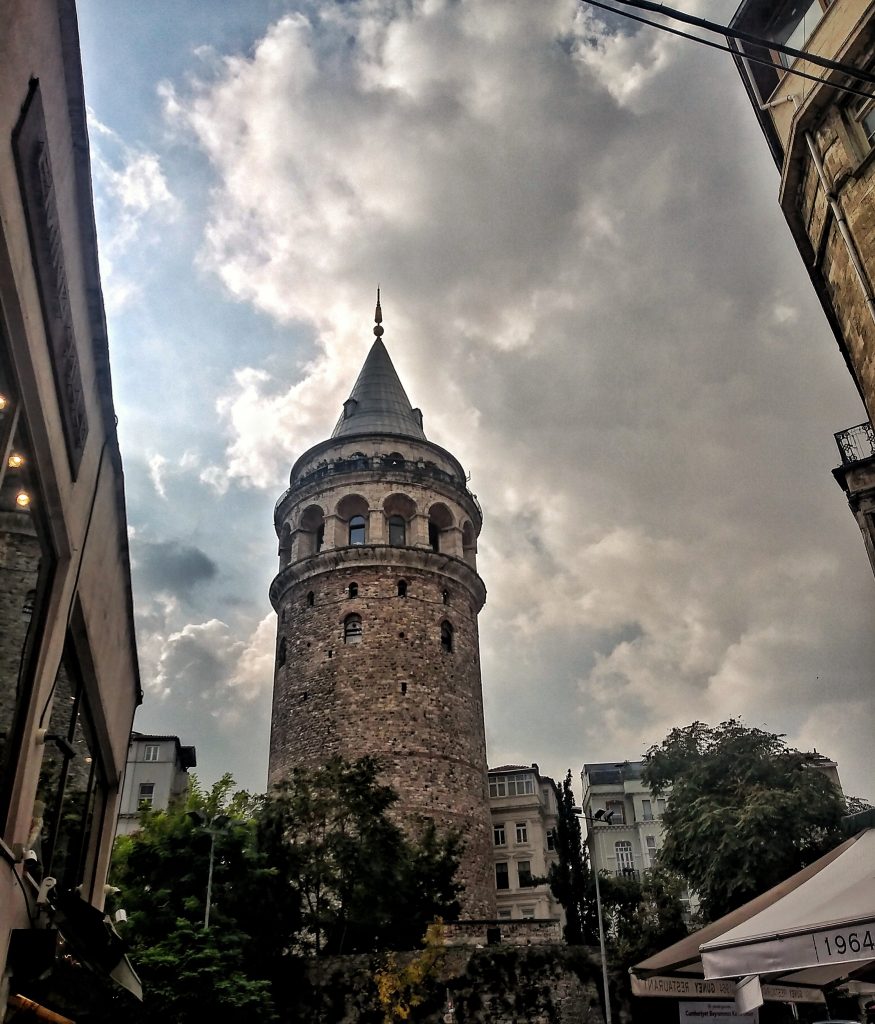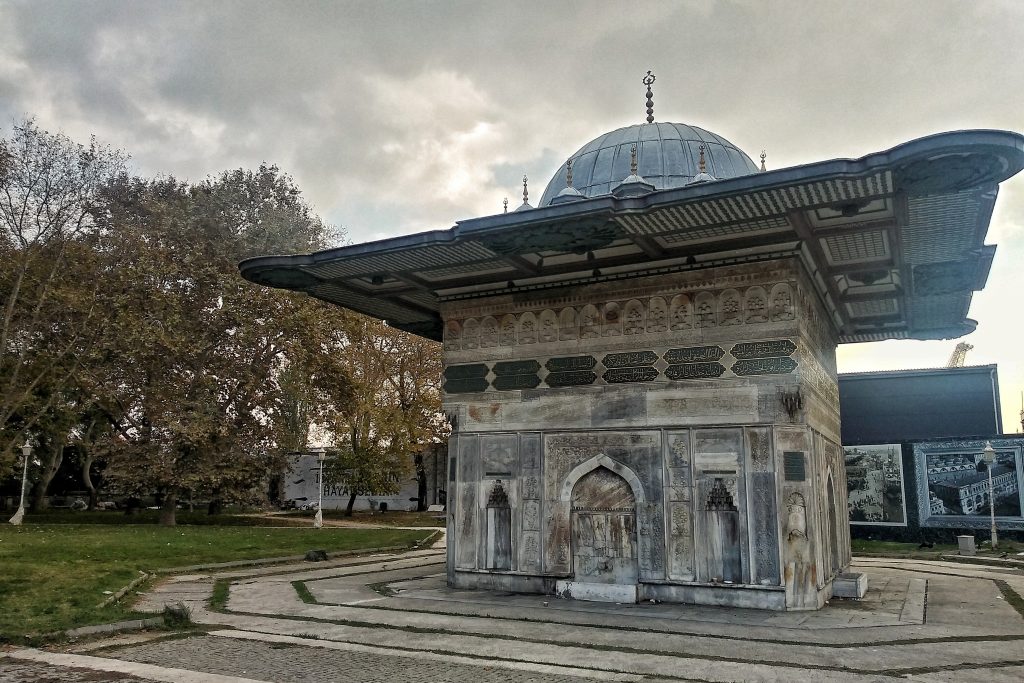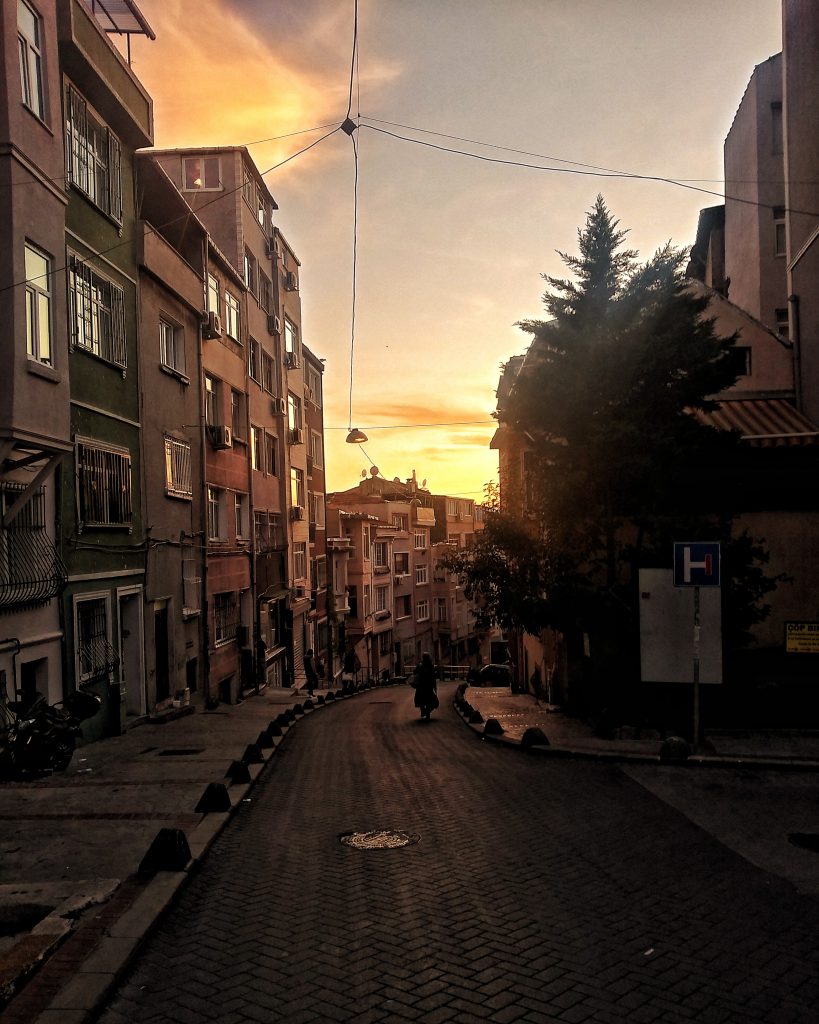The taking of tea, perhaps even more so than the taking of kahve, in Istanbul is something special. When walking into an establishment there seems to be an innate pleasure in taking of this tea. Black Pumas lyrics of their song Colors brought light to me these days. Sitting here, hidden away on the second floor of Sadabad Cafe, I see on a daily basis people take this tea, ҫay, as a staple in the places that they sit.
The second night, I was sitting on their first floor. A few couples and one large group were gathered. Sounds of dice hitting the wooden boards of the many backgammon games and clicking sounds from phone apps accompanied all the clinking glasses of ҫay. A few hookahs were scattered about. The poofs of smoke traveled first up before dissipating into the room, making it smoky, safe. Cigarettes too. Occasionally, there would be a kaşarlı tost, which is like a mini cheese panini delivered with two dips; ketchup and mayo. I would take this tost daily at the end of my lounging, while I sat and drank my ҫay.
The music was managed by various attendant’s phones, plugged in halfway up the stairs into a speaker system. When they were busy it was common the music would stop, only turning back on after the room slowed to a murmur.
- Istanbul street scene
- Taking tea
There was a fight between two of the male attendants. It started after one took the hot tongs and charcoal coals away from the other and gestured to go attend something else. Moments later they both had run upstairs, to the kitchen. I remember hearing crashing, then a loud thud, and shuffling on the floor above me. The female attendants ran back and forth in anger. All attendant faces were red. There was an intense silence during these few moments, hookah pipes down, each ҫay growing cold as all watched. There was also a certain worry in the air, entertainment, yes, but a certain uneasiness. As if everyone in the room had a vested interest for the fight to settle. And it did, eventually, and the music continued.
The following day the two attendants who fought seemed the best of friends. I took these little pieces and stuffed them into my backpack. Before setting out I checked the roll on my rolled up black linen pants. Loose, but still rolled. As I did this, there was a certain presage of loss in my mind, some unknown sense of darkness I would face. I moved along.
I made my way first to a metro line. One must have a metro card. For reference, the kiosks are not up on English. Attempting first to figure the machine, with my limited knowledge of Turkish, I resolved to watch and learn from someone in line. Click this, click that. On the metro line, moving toward my next locale, Sultanahmet I considered when something unfortunate would happen to me. I briefly checked my backpack. All the things I had stuffed away were still there.
“The female attendants ran back and forth in anger. All attendant faces were red. There was an intense silence during these few moments, hookah pipes down, each ҫay growing cold.”
It is the ‘grand district’ here in Sultanahmet, denoted in its name ‘sultan.’ It was jammed full of tourists and locals. Many of the persons seemingly were from Europe. Hearing British English sometimes, Slavic languages too. Some Arabic. But mostly Turkish. This made sense to me in the moment, just look up flights, they are cheap from Europe. Expensive from anywhere else, including the US, an English dialect I recall hearing little.
I wanted to make way toward the Grand Bazaar of Istanbul. Romanticized in historical accounts since the 1400’s and today on numerous online blogs. I had the highest of naive conceptions to bag up some scarves from the ‘orient.’ But the ‘orient’ really isn’t a place, beside it being entirely derogatory. Perhaps, I will bag up some scarves made by unknown poverty.
Upon arrival us walkers on the sidewalk were funneled through a hilariously insufficient security check. Metal detectors at every entrance, all 22 entrances. Every other person rang the red light bell. They had metals hidden away but the response seemed always to be “keep moving.” Surely the polis wouldn’t notice me bagging this little knowledge bit into my backpack.
Thoughts of the last time I took action, unbeknownst to city officers, with my estranged uncle.
Walking through the gates I noticed quickly the thinness of each material. Handmade scarves with machine lined edges and evidence of thread catching. Thin lined, Made in China, kahve ibriks. Thin lined, Made in China, hats with faux fur and faux leather all selling for top dollar. “400 Turkish Lira, it is real leather” followed by “500 Lira, it is real handwoven silk.”
‘Yeah right, and I am a ‘yahoo’,” I thought in response.
Bustles of people pushed into all the spaces. Tastes of delicious looking sweets and forehead sweat by those who did not understand how to haggle. I noticed too the thinness in the faces of the men who stood at each doorway. They were not sweaty faces, not gaunt, but their skin appeared thin and worn. I heard their thoughts that floated above each face, “who are these yahoos, who flourish in their euros and dollars” and “who are these people who come to my shop,” one of over 4,000 shops in Istanbul’s Grand Bazaar. I noticed this thinness and fell into further thought.
These thoughts however did not carry to every shop found along the streets. Gems of thickness, thickness of antiquity. Not Made in China goods too, found in little spaces, and steep ways, manned by those not present in the Grand Bazaar. I saw these thicknesses mostly in unlabeled Google map neighborhoods. And less lit walkways. Spaces in between the popular spaces, with more dust.
“No, I am not a yahoo.”
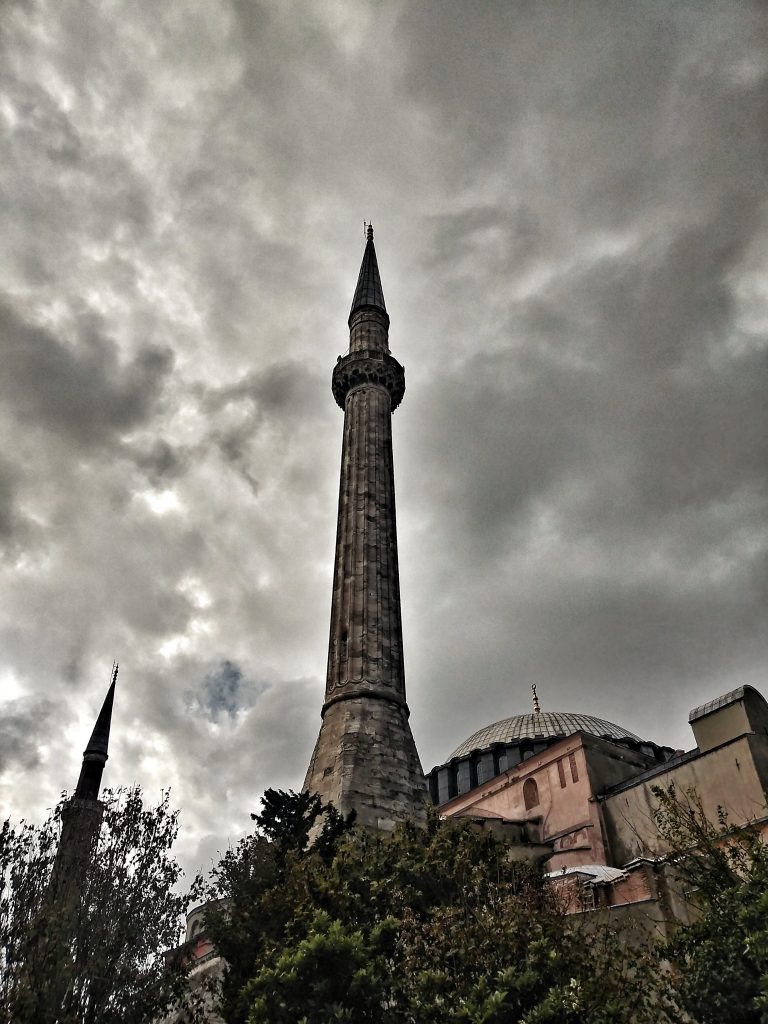
Ayasofya, or Hagia Sophia, is the former Greek Orthodox Christian patriarchal cathedral, later an Ottoman imperial mosque and now a museum in Istanbul, Turkey.
Backtracking into Sultanahmet to catch views of the Blue Mosque and of the Ayasofya, otherwise known as the Hagia Sofia, the sidewalks were nicer here; as were the many water features and public water spouts. Bagging these denotations away, I continued, returning to my favored place, Sadabad; this time taking collective notice of the differing patrons.
There were the young women, well manicured, black and brown hair often straightened. They would often gather with themselves. There were two men, often beefy, large hands, eyes that smiled and too suspected. These two men would point and make gestures toward others who did not appropriately represent their aesthetic or interests. They would laugh, grumble and spit out remnants of their shisha in large clouds especially poofed for those who they then snickered toward. There were many versions of these two men. Then there were the sporty mixed groups of young boys and girls, for a night out. They often drank just ҫay and brought their own smoke. They were chattery and made large messes throughout the lounge.
Very rarely there would be a traveler, clearly an English speaking traveler, vocalizing so that all would know who they were. Second to last there was a wise old man. His hair was long. He wore a long navy jacket that had missing buttons. His eyes were always sparkling. He was Kurdish. Often sitting in the thoroughfare beside the grocer next door, he would occasionally get up to help one of the lounge attendants, sitting back down after.
“There were the fashionable young queers, let’s say LGBT youth, who wore black and flashy garments, their hair all made a unique statement.”
This wise old man, long hair pulled back, did not remind me of the other Kurds I noticed here in Istanbul. He did not remind me of the Kurdish weed dealer, long hair pulled back, on night one, of whom I shared smoke. He did not remind me of the Kurdish musician, long hair pulled back, who walked up and down the streets, playing acoustic songs for the many tourists.
One night, I asked the head attendant, “who is this old man with long hair and a navy jacket?”
The attendant responded, “He is a very wise old man.”
That is all that is written. In each visit, the very wise old man and I locked eyes, in passing. ‘I see you, and I see that you see me.’ There was a certain joy in our eyes when we saw each other.
Lastly, there were the fashionable young queers, let’s say LGBT youth. They wore black and flashy garments, their hair all made a unique statement. They would entourage inside, making eye contact with those who would allow. Most did not allow, but those who did I saw them too. Sometimes I would allow for us to make eye contact, if only to see the emotion that this entourage would give.
Curiosity of the unknown.
The two men who often laughed and gestured, never missed a chance to do so with these queer persons. Snickers and aversion directed at them all. Noting this, all of it, I bagged it up and made way toward another place to sit. It is a heavy wayward journey, in comfort.
Nonetheless, my backpack grew heavy. As I set out, I thought again of Ayasofya, saying aloud to myself as I walked “all eyes look at you Ayasofya.” In this vocalization I considered my own eyes that look at the Ayasofya. It was in no hesitation that I did not walk inside, nor tour its long history. I have the eyes of more than a million persons who are always watching the moves that you make dear Ayasofya. My interpretation of your place will not be today. So I left the place for others to assess and to find its currency.
- Sara Kafe, Beyoglu
- Beyoglu streetscape
For me, I looked for the quiet places. And the loud places. And the spaces where persons gather in daily taking of things. I look for the peace between differing people. I look to understand many borders. When sitting one night in Beyoğlu at a bar with a new friend, Mohammed, he made gesture up a side street near us.
“You see there? That is the fish market, fish district.” Referring to a few commercial streets among Beyoğlu’s many commercial streets.
I quickly responded “ah, balık, evet?”
There was a pause.
Then Mohammed smiled and said “I appreciate you. Many tourists, they come here not knowing anything. We do not all speak English. It’s important you know, to study a place, its people, before coming.”
Taking my own pause, with my own careful smile, I followed “I took study for three weeks before coming. Allah razı olsun, I appreciate you.”
Recommendations by Mohammed and my friend back in Detroit, Razi, led me to my next spot of travel, Balat. A historically Armenian, Greek, and Jewish district. Located Northwest of Sultanahmet, I was advised to take the ferry to it, across some of Istanbul’s many waters. This, I of course did not do, but rather found comfort in walking through areas without a name, other areas so not named on Google maps.
- Galata Tower
- Karakoy Structure
- Beyoglu dusk
I found a man who sold soaps, a simple stall along a narrow street full of metal workers and scrappers. He had a little sign that said ‘3 – 10TL’ that is approximately 1.80 USD for three of his well scented soaps. I quickly gathered up three, and gave him his 10TL. Teşekkür ederim, thank you. And, man I see you, and your practice here from this little stall on the street. I appreciate you. I thought for a second of something my friends Palesa and Siphiwe from Maboneng, South Africa spoke of when we were all in Austria together.
“More indigenous lands have been colonized by maps than by guns.” I thought of this, have thought on it before.
Considerations of all these Google Maps I had saved in offline mode. Consideration, then more movement, to places denoted on my maps. The streets of Istanbul are like hiking a mountain every day. One must take topography into account to get some bread. To get water. To work.
Balat was a quaint place, with fewer mountains to climb. A bit more expensive, a bit more posh. It had lots of little walkways with greenery that hung from above and from the sides of many of the quaint narrow buildings. Tourists were up and down these streets too. Some from South Asia, more from Europe.
I sat for a moment. Taking in the photographers who were snapping in every direction. And then I moved along.
I traveled back through all the side streets and family homes with their many layers. I traveled back through the commercial areas. Back through the alleyways with their multitudes of cats. I traveled past the numerous mosques where persons gathered, shoes off, in taking of prayer. I traveled through where I had been. I traveled past the teenagers with their flannels and studies and neck smooching. I traveled past the hard eyed men, with their water pipes and dozens of ҫay glasses. I moved past the numerous leaflets, red flags and framed pictures of Erdoğan’s ‘savior of the people’ or verbatim ‘big brother’ personas. I traveled down steep ways lined with more men than women. I moved with feet that were tired. Past places with other names like Kadıköy, and Karaköy, and Taksim, and Beşiktaş. I moved continuously to find something. Lugging along a weighted backpack.
I found myself at Sabiha Gökçen International Airport, on the Asian side of Istanbul. Noting all I had seen. I had to keep moving my feet, in this tire. At the gate they scanned my boarding pass. I moved to find my seat and at least two pillows for my next journey. I placed carefully all I had sensed, and visualized, here in Istanbul into my backpack, for another day. Görüşürüz, see you.
photographs by Julièn Godman


